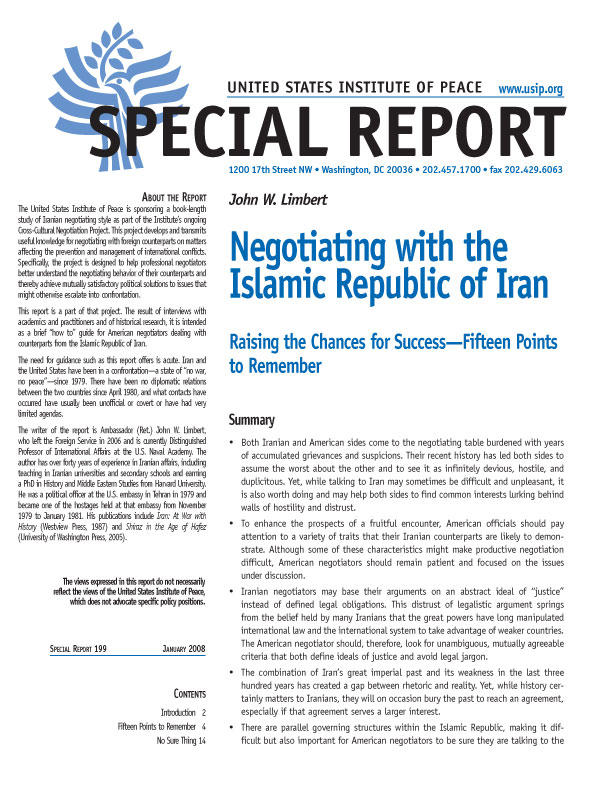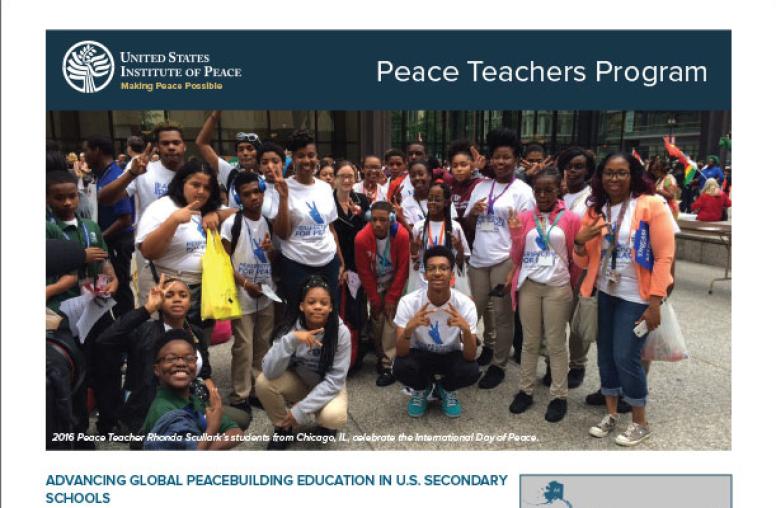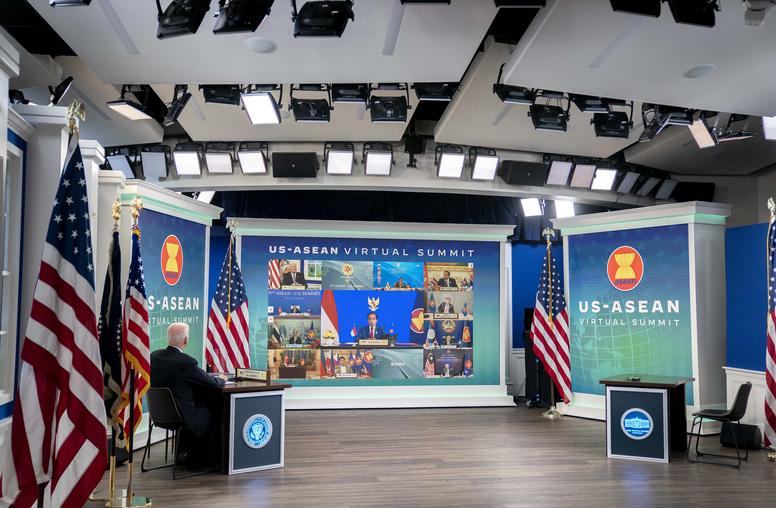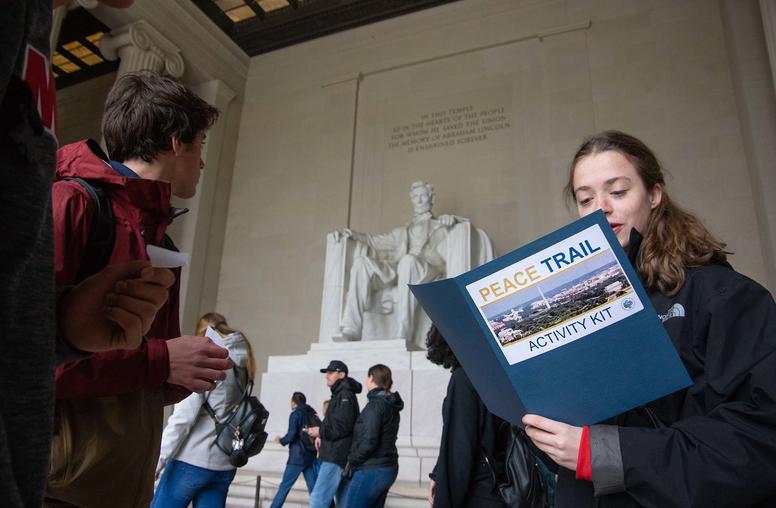Negotiating with the Islamic Republic of Iran
This Special Report, framed as a brief "how to" guide for American negotiators dealing with counterparts from the Islamic Republic of Iran, contains insights into Iranian negotiating patterns and appropriate responses. The report is the result of interviews with academics and practitioners, as well as historical research.

Summary
- Both Iranian and American sides come to the negotiating table burdened with years of accumulated grievances and suspicions. Their recent history has led both sides to assume the worst about the other and to see it as infinitely devious, hostile, and duplicitous. Yet, while talking to Iran may sometimes be difficult and unpleasant, it is also worth doing and may help both sides to find common interests lurking behind walls of hostility and distrust.
- To enhance the prospects of a fruitful encounter, American officials should pay attention to a variety of traits that their Iranian counterparts are likely to demonstrate. Although some of these characteristics might make productive negotiation difficult, American negotiators should remain patient and focused on the issues under discussion.
- Iranian negotiators may base their arguments on an abstract ideal of "justice" instead of defined legal obligations. This distrust of legalistic argument springs from the belief held by many Iranians that the great powers have long manipulated international law and the international system to take advantage of weaker countries. The American negotiator should, therefore, look for unambiguous, mutually agreeable criteria that both define ideals of justice and avoid legal jargon.
- The combination of Iran’s great imperial past and its weakness in the last three hundred years has created a gap between rhetoric and reality. Yet, while history certainly matters to Iranians, they will on occasion bury the past to reach an agreement, especially if that agreement serves a larger interest.
- There are parallel governing structures within the Islamic Republic, making it difficult but also important for American negotiators to be sure they are talking to the right people. The factionalization of the Iranian political system can make Iranian negotiators reluctant to reach an agreement lest they become vulnerable to charges of "selling out" to foreigners.
- Grand gestures may overshadow the substance of issues under negotiation, and American negotiators need to be able to distinguish substance from political theater.
- Iranians feel that they have often been treated as fools in political contacts, and they will be very sensitive to American attitudes. If they sense that the American side considers them irrational and unreasonable, they are likely to react in exactly that way. American negotiators should thus treat their Iranian counterparts with professional respect and not lecture them on what is in Iran’s national interest.
- The Islamic Republic believes itself surrounded by hostile American, Arab, Turkish, and Sunni forces, all determined to bring about its downfall. Conspiracy theories are very popular, and events such as the 1979 Islamic Revolution and the Iran-Iraq War are often considered the outcome of great power plots.
- If an American negotiator senses that that the Iranians are overplaying a hand and pushing a momentary advantage beyond its value, the best response is to ask, "On what basis are you asking for that?" and to insist that the Iranian side come up with some understandable basis for its position. Mediation or arbitration by an impartial body can sometimes help to counter what appear to be unreasonable demands.
- What works in any negotiation--preparation, knowing each side’s best alternative to a negotiated agreement (BATNA), building relationships, and understanding underlying interests--will work in negotiations with Iranians. What can undermine any negotiation--such as ill-advised public statements--can also compromise negotiations with Iranians.
About the Report
The United States Institute of Peace is sponsoring a book-length study of Iranian negotiating style as part of the Institute’s ongoing Cross-Cultural Negotiation Project. This project develops and transmits useful knowledge for negotiating with foreign counterparts on matters affecting the prevention and management of international conflicts. Specifically, the project is designed to help professional negotiators better understand the negotiating behavior of their counterparts and thereby achieve mutually satisfactory political solutions to issues that might otherwise escalate into confrontation. ( ![]() See books from USIP Press on Cross-Cultural Negotiation)
See books from USIP Press on Cross-Cultural Negotiation)
This report is a part of that project. The result of interviews with academics and practitioners and of historical research, it is intended as a brief "how to" guide for American negotiators dealing with counterparts from the Islamic Republic of Iran.
The need for guidance such as this report offers is acute. Iran and the United States have been in a confrontation--a state of "no war, no peace"--since 1979. There have been no diplomatic relations between the two countries since April 1980, and what contacts have occurred have usually been unofficial or covert or have had very limited agendas.
The writer of the report is Ambassador (Ret.) John W. Limbert, who left the Foreign Service in 2006 and is currently Distinguished Professor of International Affairs at the U.S. Naval Academy. The author has over forty years of experience in Iranian affairs, including teaching in Iranian universities and secondary schools and earning a PhD in History and Middle Eastern Studies from Harvard University. He was a political officer at the U.S. embassy in Tehran in 1979 and became one of the hostages held at that embassy from November 1979 to January 1981. His publications include Iran: At War with History (Westview Press, 1987) and Shiraz in the Age of Hafez (University of Washington Press, 2005).



